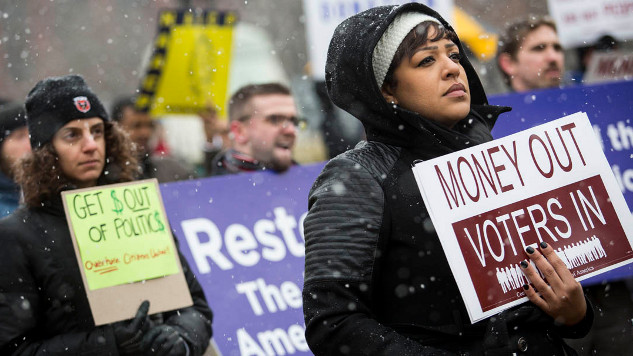
There's a popular meme circulating highlighting some startling statistics about America: millions uninsured, dire poverty, high illiteracy rates, untreated mental illnesses, and frequent gun violence. Yet, amidst all these pressing issues, some power players divert our attention toward controversies involving trans individuals and black history. You might wonder, "Why is that the focus?"
Setting the Scene: American Realities
Roughly 30 million of our fellow Americans navigate life without the safety net of health insurance. And many teeter on a financial tightrope, where just one unexpected illness could send them plummeting. The disparity becomes even more palpable when you look at other OECD countries. Take Italy, for example, where a mere 5% hold low-wage jobs, yet they're guaranteed free healthcare and college education.
Moreover, our educational system is lagging. Over a fifth of our children are illiterate by fourth grade. Our mental health system? It's faltering to nonexistent for the most needy, with over half of the 26% diagnosed with mental illnesses not getting the help they need. Gun violence adds another layer to the tragedy, the leading cause of death of children in the country. All these issues, yet, why is there a vehement focus on preventing trans kids from expressing their identity and stopping schools from teaching black history?
The Billionaire Influence
Starting during the Reagan years, a shift leans heavily toward this country's wealthiest. They're parting with a mere 3.4% in income tax on average. And then there are folks like Donald Trump, who seems to have a magic trick up their sleeves, often sharing not even that tiny morsel.
With their amassed wealth, a hypothesis emerges: a tiny fraction of these billionaires, possibly suffering from a hoarding variant of OCD, use their resources to divert public attention. Instead of hoarding physical items, they hoard wealth, properties, and influence. Their agenda? Divert attention from the core issues affecting America and maintain their grip on power and wealth.
The Political Chessboard
The transformation of our political landscape is both stark and alarming. What was once a battleground of ideologies and public interests has now morphed into a veritable playground for billionaires. With the pivotal Citizens United ruling, a seismic shift occurred, equating money with free speech. This has not only allowed but encouraged the inflow of vast sums from wealthy individuals and powerful corporations into our political arenas. Their reach extends deep into the roots of our democracy, enabling them to "purchase" politicians like pawns on a chessboard.
This new era of politics, heavily influenced by unchecked capital, has introduced an environment where the interests and whims of a select few consistently overshadow the genuine needs and aspirations of the larger populace. By wielding their immense financial might, these billionaires have the unprecedented capability to dictate public narratives. And, strategically, they direct national attention towards divisive issues, ensuring that while we're embroiled in disagreements, their influence remains unchecked and their interests safeguarded.
The Price of Distraction
The insidious creep of financial influence into our political system is not merely a matter of campaign budgets and lobbying. We find the unmistakable fingerprints of vast financial influence, and it's not just about campaigns and lobbyists. You can feel its weight in our society's very bricks and mortar. Our schools, once nurturing cradles of knowledge and dreams for our youth, now sadly show signs of neglect and decay. The roads we traverse, essential for our daily lives and economy, crumble beneath us, reflecting the negligence and decay of our public systems. As these critical institutions falter, the gap between the wealthy elite and the average citizen continues to expand, casting a shadow of economic disparity across our nation.
Amidst this challenging landscape, some politicians dare to resist the powerful currents of moneyed interests, striving to realign the nation's focus on its people and their welfare. Legislative efforts like the "For The People Act" emerge as rays of hope, aiming to curtail the undue influence of the ultra-rich in politics. Yet, these attempts often meet formidable obstacles, masterminded by those benefiting from the status quo. Their well-orchestrated resistance not only thwarts these initiatives but also ensures that the existing, billionaire-friendly environment remains unchallenged and intact.
Decoding the Strategy
When we revisit that meme, the larger picture becomes evident. As long as the nation is torn apart, arguing over gender and racial education, the true culprits can continue their spree, accumulating more wealth and influence. It's a time-tested "divide and conquer" tactic penned down millennia ago by Marcus Aurelius.
We must recognize this strategy and shift our focus to the pressing issues impacting the majority. We must guard against allowing a select few to control the narrative, ensuring that every individual's rights and struggles are equally acknowledged and addressed.
In this thought-provoking video, Thom Hartmann further exposes this web of billionaire influence and societal distraction. Drawing attention to these startling statistics that paint a somber picture of modern America, Hartmann challenges us to question the narrative presented to us. Why are divisive social issues prioritized amidst rising health, education, and economic crises? With his signature insight, Hartmann unveils the possible motives behind these distractions and the billionaires who might benefit.
About the Author
 Robert Jennings is co-publisher of InnerSelf.com with his wife Marie T Russell. He attended the University of Florida, Southern Technical Institute, and the University of Central Florida with studies in real estate, urban development, finance, architectural engineering, and elementary education. He was a member of the US Marine Corps and The US Army having commanded a field artillery battery in Germany. He worked in real estate finance, construction and development for 25 years before starting InnerSelf.com in 1996.
Robert Jennings is co-publisher of InnerSelf.com with his wife Marie T Russell. He attended the University of Florida, Southern Technical Institute, and the University of Central Florida with studies in real estate, urban development, finance, architectural engineering, and elementary education. He was a member of the US Marine Corps and The US Army having commanded a field artillery battery in Germany. He worked in real estate finance, construction and development for 25 years before starting InnerSelf.com in 1996.
InnerSelf is dedicated to sharing information that allows people to make educated and insightful choices in their personal life, for the good of the commons, and for the well-being of the planet. InnerSelf Magazine is in its 30+year of publication in either print (1984-1995) or online as InnerSelf.com. Please support our work.
Creative Commons 4.0
This article is licensed under a Creative Commons Attribution-Share Alike 4.0 License. Attribute the author Robert Jennings, InnerSelf.com. Link back to the article This article originally appeared on InnerSelf.com

Related Books:
On Tyranny: Twenty Lessons from the Twentieth Century
by Timothy Snyder
This book offers lessons from history for preserving and defending democracy, including the importance of institutions, the role of individual citizens, and the dangers of authoritarianism.
Click for more info or to order
Our Time Is Now: Power, Purpose, and the Fight for a Fair America
by Stacey Abrams
The author, a politician and activist, shares her vision for a more inclusive and just democracy and offers practical strategies for political engagement and voter mobilization.
Click for more info or to order
How Democracies Die
by Steven Levitsky and Daniel Ziblatt
This book examines the warning signs and causes of democratic breakdown, drawing on case studies from around the world to offer insights into how to safeguard democracy.
Click for more info or to order
The People, No: A Brief History of Anti-Populism
by Thomas Frank
The author offers a history of populist movements in the United States and critiques the "anti-populist" ideology that he argues has stifled democratic reform and progress.
Click for more info or to order
Democracy in One Book or Less: How It Works, Why It Doesn't, and Why Fixing It Is Easier Than You Think
by David Litt
This book offers an overview of democracy, including its strengths and weaknesses, and proposes reforms to make the system more responsive and accountable.
Click for more info or to order


























